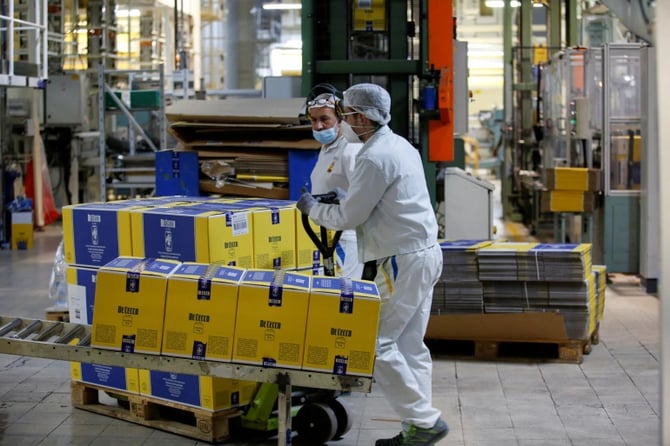Eurozone Economy Sinks to 18-month Low

Economic activity in Europe tumbled for a second consecutive month in August, as high inflation fueled by Russia’s war in Ukraine sours the outlook.
The S&P Global Flash Eurozone Purchasing Managers Index (PMI) slumped to its lowest level in 18 months. Climbing prices reduced demand for services and supplies to manufacturing. The index fell from 49.9 in July to 49.2 in August. Any number below 50 represents a contraction in business activity.
Manufacturing was already down in July, but the contagion has now spread to services, including tourism, which helped some European economies limp through the summer.
The survey revealed that European manufacturers had built up record inventories of unsold finished goods in similar fashion to American manufacturers, which was now hurting their cash flow. The situation is not aided by stubbornly high oil and gas prices linked to the war in Ukraine.
What does this mean for me?
The Eurozone PMI first dropped under 50 in July after 16 months of growth on inflation driven by soaring energy prices and supply-chain crises that battered the world economy.
Now, inflation-linked cost of living pressures means that the recovery in the service sector following the lifting of pandemic restrictions is taking place slower than expected.
The S&P Global Flash Eurozone Purchasing Managers Index (PMI) slumped to its lowest level in 18 months. Climbing prices reduced demand for services and supplies to manufacturing. The index fell from 49.9 in July to 49.2 in August. Any number below 50 represents a contraction in business activity.
Manufacturing was already down in July, but the contagion has now spread to services, including tourism, which helped some European economies limp through the summer.
The survey revealed that European manufacturers had built up record inventories of unsold finished goods in similar fashion to American manufacturers, which was now hurting their cash flow. The situation is not aided by stubbornly high oil and gas prices linked to the war in Ukraine.
What does this mean for me?
The Eurozone PMI first dropped under 50 in July after 16 months of growth on inflation driven by soaring energy prices and supply-chain crises that battered the world economy.
Now, inflation-linked cost of living pressures means that the recovery in the service sector following the lifting of pandemic restrictions is taking place slower than expected.
Declining output is now being seen across a range of sectors; economic weakness has become more broad-based in nature. If you are a trader with investments in European financial assets, you may have to prepare for troubling times ahead.
المزيد من الاخبار

الصين تفرض عقوبات على 20 شركة أمريكية تبيع الأسلحة لتايوان
منذ يومين

بنك "أوف أمريكا": مبيعات أشباه الموصلات ستتجاوز تريليون دولار بحلول 2026
منذ 3 أيام

بنك اليابان يلمّح لمزيد من رفع الفائدة مع ترسخ دورة الأجور والأسعار
منذ 3 أيام

مبيعات أشباه الموصلات تتجه لتجاوز التريليون دولار بحلول 2026 بفضل موجة الذكاء الاصطناعي
منذ 3 أيام

انخفاض أسعار الفائدة على الرهن العقاري في الولايات المتحدة للأسبوع الثاني على التوالي
منذ 3 أيام

على عكس التوقعات.. تراجع طلبات إعانة البطالة في الولايات المتحدة
منذ 3 أيام

توتر تجاري جديد: الصين ترفض رسوم واشنطن على الرقائق وتلوح باتخاذ إجراءات دفاعية
منذ 4 أيام

توقعات ساكسو بنك لعام 2026: ارتفاع سعر الذهب إلى 10000 دولار للأونصة، والذكاء الاصطناعي يقود أسواق الأسهم القيادية
منذ 4 أيام